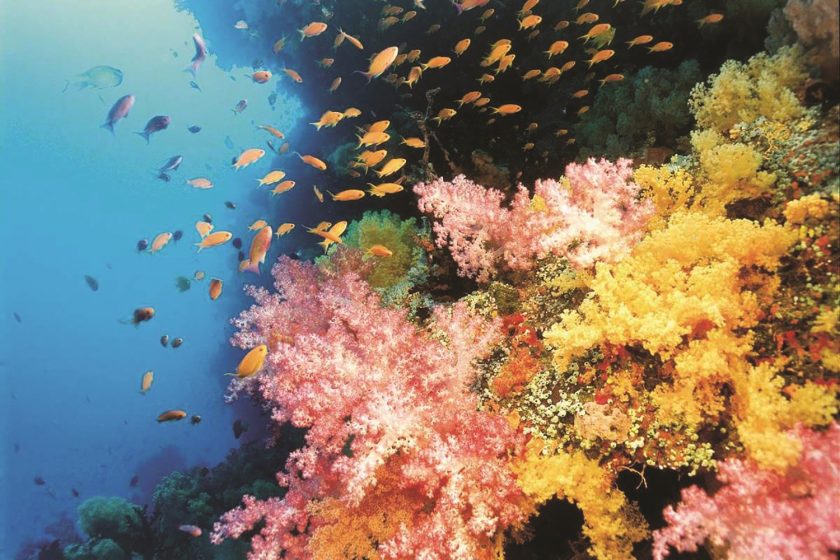Gulf Reef Gathering
November 25, 2019

An impromptu meeting between Jackson School of Geosciences Assistant Professor Rowan Martindale and Rice University Assistant Professor Adrienne Correa may pay big dividends for future research on reefs in the Gulf of Mexico. What started as a conversation between the two after a presentation given by Correa at The University of Texas at Austin morphed into a gathering of researchers working on reef systems throughout the Gulf in October 2018.
The two-day meeting — “Gulf of Mexico Reefs: Past, Present, Future” — brought nearly 40 scientists from throughout the region together at Rice University. Most were from universities in Texas and Louisiana, but there were also participants from Florida, Mexico and the Flower Garden Banks National Marine Sanctuary located off the Louisiana-Texas border. The purpose was to bring local scientists studying reefs in the Gulf together to foster new
ideas and collaborations.
The gathering was organized by Martindale, Correa and then-Jackson School doctoral candidate Anna Weiss (Weiss earned her doctorate in 2019). It has already prompted an upcoming special topics section in the journal Frontiers in Marine Science and an agreement that the gathering should take place regularly, probably every two years.
Martindale said the need to foster communication among reef researchers in the region became clear after attending Correa’s February 2019 Hot Science-Cool Talks presentation at UT titled “Texas’ Own Coral Reefs: Weathering the Storm,” which explored how Hurricane Harvey affected the coral reefs of the Flower Garden Banks National Marine Sanctuary, which is located 100 nautical miles offshore of Galveston.
Like many in the diverse field, Martindale and Correa share a common research interest but come about it from different directions or, in this case, time scales. Whereas Correa specializes in the ecology and evolutionary biology of modern reefs, Martindale studies reefs and mass extinctions in the ancient world. Bringing together different approaches and disciplines was one of the themes of the meeting.
“It ended up being quite a diverse group of people, a little more biologically inclined than we had originally thought,” Martindale said.
Back to the Newsletter